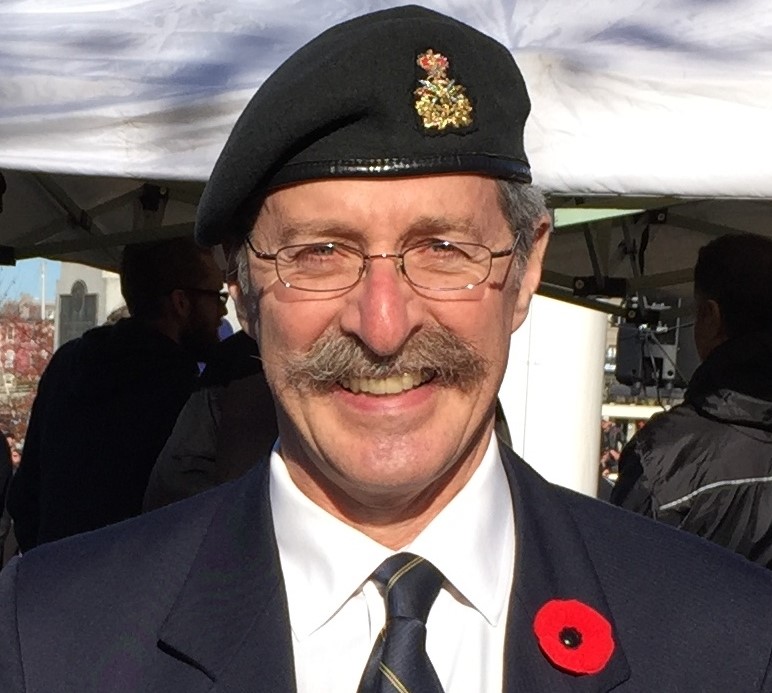As a soldier, Ed Fitch is used to hearing and delivering straight, sometimes blunt talk.
So as someone who occupied rarefied heights for a Jewish member of the Canadian Armed Forces (CAF)—he retired in 2009 with the rank of Major-General—Fitch dismisses recent complaints that anti-Semitism has been left off the mandate of a panel examining systemic racism in the CAF. He describes those comments as “a tempest in a teapot” and a “pseudo-story.”
Even though anti-Semitism is not mentioned by name, Fitch said, “I can tell you with assurance it’s already part of the (panel’s) mandate.”
Fitch was responding to recent stories from the Ottawa Citizen and The CJN. Both reports quoted Bernie Farber, head of the Canadian Anti-Hate Network and a former CEO of the defunct Canadian Jewish Congress, who said the absence of anti-Semitism in the focus of a panel on racism, created last year by the Department of National Defence (DND), is “a serious omission.”
Given that Jews are usually the number-one target of extremists, Farber said he found it “odd” that anti-Semitism “has not been made part of what they are looking at,” and he urged panel members to reconsider.
DND was quick to respond that anti-Semitism is already included in the panel’s mandate to examine racism and discrimination in the Forces “in all their forms.”
Struck last December by Defence Minister Harjit Sajjan, the Ministerial Advisory Panel on Systemic Racism and Discrimination is tasked with examining “systemic racism, discrimination with a focus on anti-Indigenous and anti-Black racism, LGBTQ2 prejudice, gender bias and white supremacy” in the CAF.
Adding “anti-Semitism” to the panel’s work now is “kind of tinkering after the fact,” said Fitch. “The mandate is adequate,” and includes other forms of hate that also aren’t listed, he said.
Read the original story: “Military panel urged to include anti-Semitism in its focus”
Besides, the makeup of the panel speaks to its thoroughness, Fitch added, noting that he’s one of four members. “You want statistics?” he asked during a recent CJN interview. “Twenty-five per cent of the panel is Jewish. How about that?
“I think I’m known for not being soft on anti-Semitism, so it’s a lens that I apply to whatever I’m doing.”
What “saddens” Fitch, who served as an active soldier for 43 years, is that this episode “cast aspersions” on Sajjan, whom Fitch calls “one of the best friends Jews have in Canada. He doesn’t make a big deal about it. I’ve known him for over 20 years and consider him a friend. To attack him as ignoring or underplaying anti-Semitism is really unfortunate.”
Fitch also pointed out that media coverage of racism in the Forces tends to focus on individual members who have associated with white supremacist and neo-Nazi groups. The big word in the CAF panel’s mandate is “systemic,” Fitch notes.
“The minister did not ask the panel to look into individual conduct. It’s systemic,” he said. “To me, systemic discrimination and racism is the pattern on the wallpaper. It’s in the room, all over the walls of the room, but nobody sees it.”
The panel’s task is to find and expose systemic, built-in racism in the Forces and identify barriers that have remained unseen “because we’re so used to them.”
Hard to detect bigotry in the Forces
Fitch acknowledged that, like the public, the CAF has wondered how members who become involved with neo-Nazi groups get into the Forces in the first place.
It’s “a challenge for recruiting groups in many countries in the world, and we’re initiating some communication with our allies to see if they figured something out that we haven’t,” he explained.
Those who hate “are learning to be very sophisticated, learning where the boundaries are, and how to stay just outside the boundary of getting charged for unprofessional conduct.”
Whether a prospective CAF member is anti-Semitic is hard to pin down, and there’s no test for it.
“At the recruiting level, it’s very difficult to detect,” said Fitch. “So part of our role in looking at systemic causes is to evolve the culture” of the CAF—100,000 regular members and reservists, and 25,000 DND employees—“so that anyone expressing hate will be called out by their own peers. We’re going to make it so uncomfortable for them, they’ll either not join or leave on their own. They won’t find fertile ground anymore.”
Farber, however, still questions the process.
The federal government, he pointed out, is so concerned about anti-Semitism that it is convening a national summit on the issue, “while the Canadian military decides that it will not be part of its anti-racism panel.”
Fitch said the panel is in the process, at its six-month mark, of preparing an interim update that’s scheduled to go to Sajjan at the end of June, and “there will be clear mention of anti-Semitism in that document.”
